Mangita – Click here for Google Map Link
It was great to be sailing again. We left Efate with a beautiful 15 knot wind on the beam, music playing on our little portable Bose speakers and the occasional dolphin jumping ( which only Denny witnessed). Instead of doing a straight overnite to Epi we decided to stop in on Mangita Island. We arrived in the afternoon and the wind was slowly accelerating so it was nice to drop anchor after a careful search for a spot that had no large coral reef outcrops or ‘Bommies’. Soon after we dropped anchor we saw some locals coming towards us paddling (not rowing but paddling) a 14 foot aluminum boat. Ironic how the traditional mode of water travel on this island had gone from paddling dugout canoes to driving aluminum power boats back to paddling but using the aluminum boats. Is that progress ? The wind was strong and it looked like the paddlers were really struggling so we set out to blow up the dinghy in case they needed to be rescued. By the time we had the dinghy ready to go they had made it to the boat. They greeted us with a ‘Hello brother and sister’ and started dumping field corn, coconuts, grapefruits and cucumbers in the cockpit. It wasn’t a welcome gift, they were asking for a donation, a mere $30 to fund their local student soccer team. Hard to not give some money when your cockpit is littered with local produce. They also volunteered (for a negotiated fee based on the catch) to take Denny for a night dive for some fresh crustaceans for our dinner. We also had to supply the transportation and batteries for their torches. It was a fine feast of a variety of shell fish but we both agreed we would not do it again. The amount of meat obtained was not worth the effort of killing these beautiful colorful creatures, most of which had been speared by a spear gun.
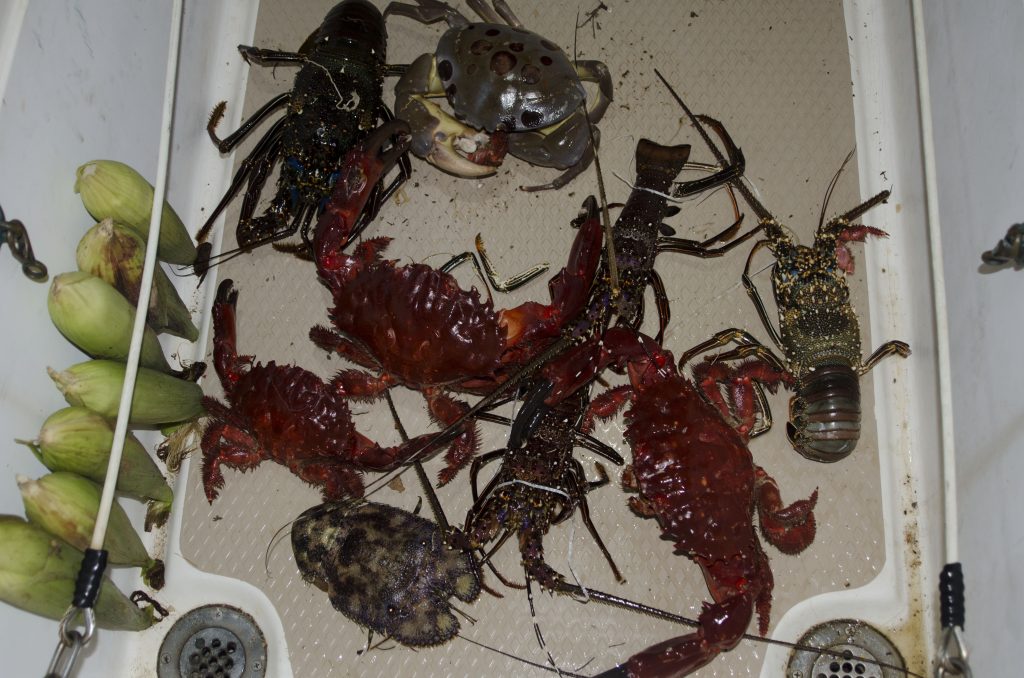
What’s for dinner??
We spent an extra day here but had no luck getting to shore because of the gusty wind and the reef surrounding the beach. It was time to sail onward to Epi in search for the elusive Dugong or Sea Cows. We had a little trouble pulling up the anchor as a part on the windlass suddenly broke. The workaround until we can get the extra part requires me to go down below and keep tension on the chain while Denny uses the windlass. I can tell you it isn’t much fun when there is 200 feet of chain out. A little nerving for Denny too when the anchor is free and he has to make a mad dash back to the cockpit to keep the boat from drifting to shore.
Epi – Click here for Google Map link
The sail to Epi was pretty uneventful, a wonderful 15 knot breeze on the rear quarter. The anchorage in Epi was a large open bay so it had lots of swell and roll. It was bad enough that we had to throw out a stern anchor to keep us from being a beam to the waves and thus rolling with every wave. Three days in Epi but and no Dugong but lots of turtles. 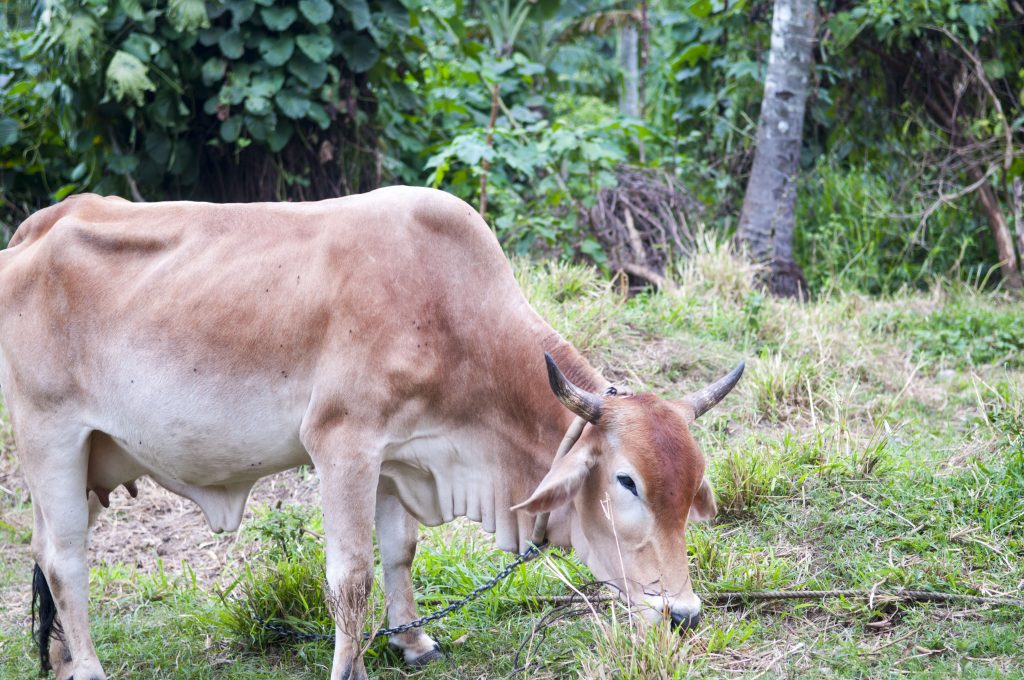 Every local that we talked to gave us a different location as to where we may find the elusive sea creature.
Every local that we talked to gave us a different location as to where we may find the elusive sea creature. 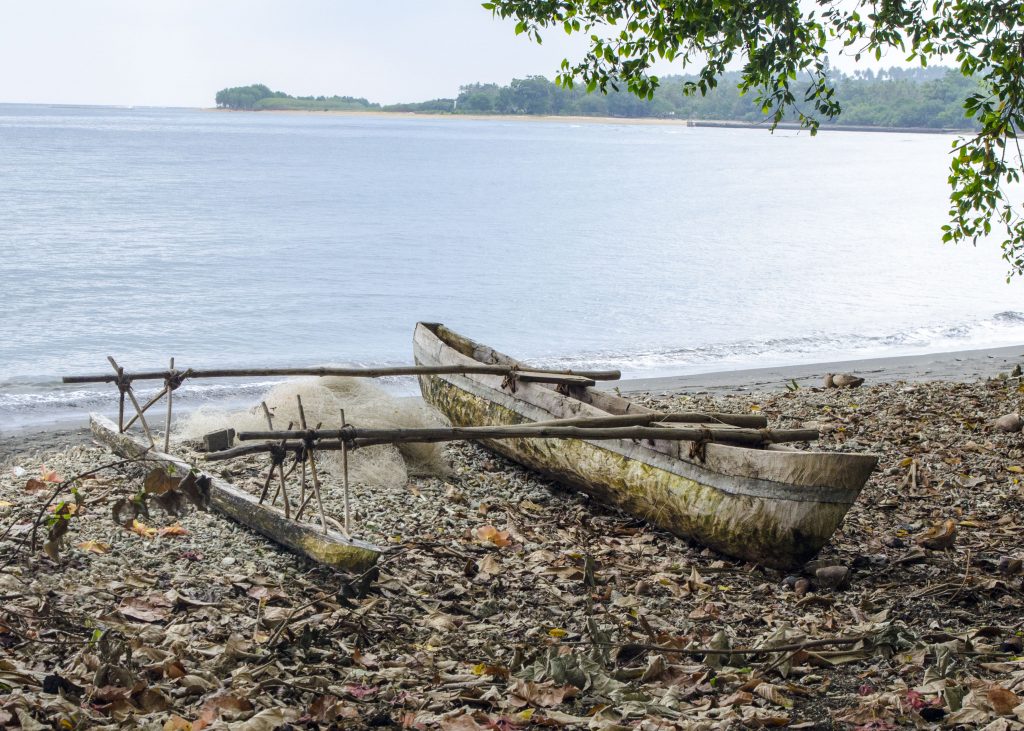 But we did enjoy finally being immersed into somewhat more of the traditional way of life. People used dugout canoes and lived in the simple thatched huts and everyone had a garden, chickens and an occasional cow. They fished with nets and hook and line but it seemed the fish were scarce. Despite the day to day existence it seemed like everyone had cellphones and there seemed to be cell phone towers everywhere. There were also quite a few large trucks for the few miles of road. Walking was not a favorite past time as truck cabs were filled with paying passengers going short distances. There was a Medical Health centre here but only staffed by nurses that made the decision whether you needed to be helicoptered out to Port Vila. There were signs warning people about Malaria and everyone had been given a mosquito tent for sleeping but we were told it isn’t an issue until the rainy season when there is a lot of standing water.
But we did enjoy finally being immersed into somewhat more of the traditional way of life. People used dugout canoes and lived in the simple thatched huts and everyone had a garden, chickens and an occasional cow. They fished with nets and hook and line but it seemed the fish were scarce. Despite the day to day existence it seemed like everyone had cellphones and there seemed to be cell phone towers everywhere. There were also quite a few large trucks for the few miles of road. Walking was not a favorite past time as truck cabs were filled with paying passengers going short distances. There was a Medical Health centre here but only staffed by nurses that made the decision whether you needed to be helicoptered out to Port Vila. There were signs warning people about Malaria and everyone had been given a mosquito tent for sleeping but we were told it isn’t an issue until the rainy season when there is a lot of standing water.
Our next stop would be a day sail to the Maskelyn Islands.
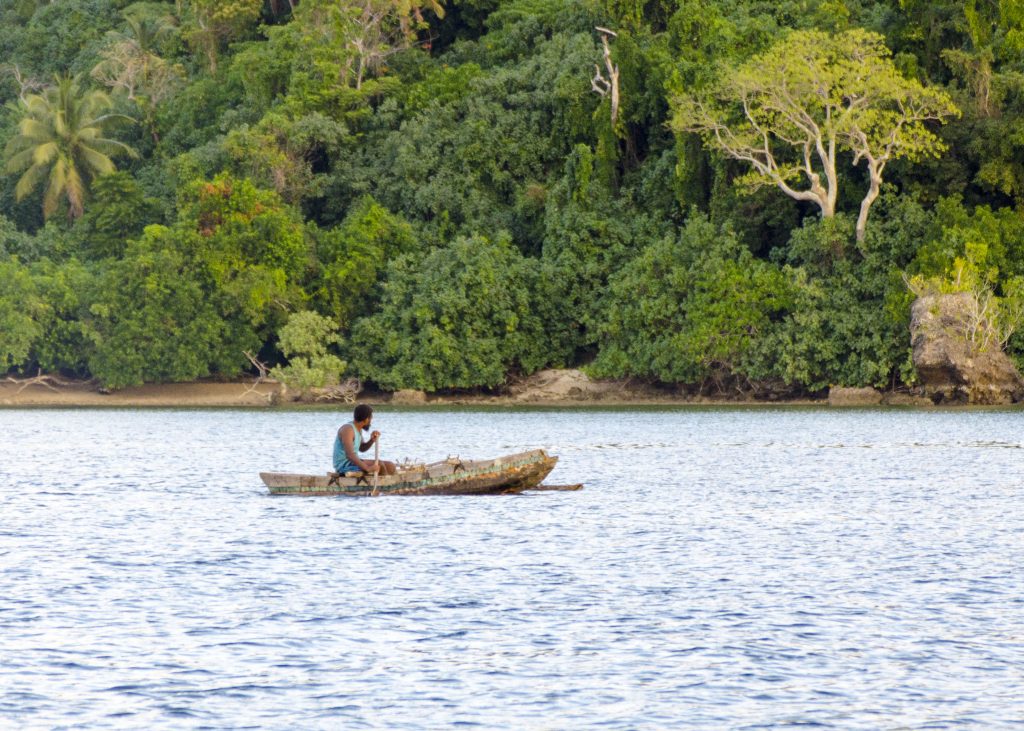
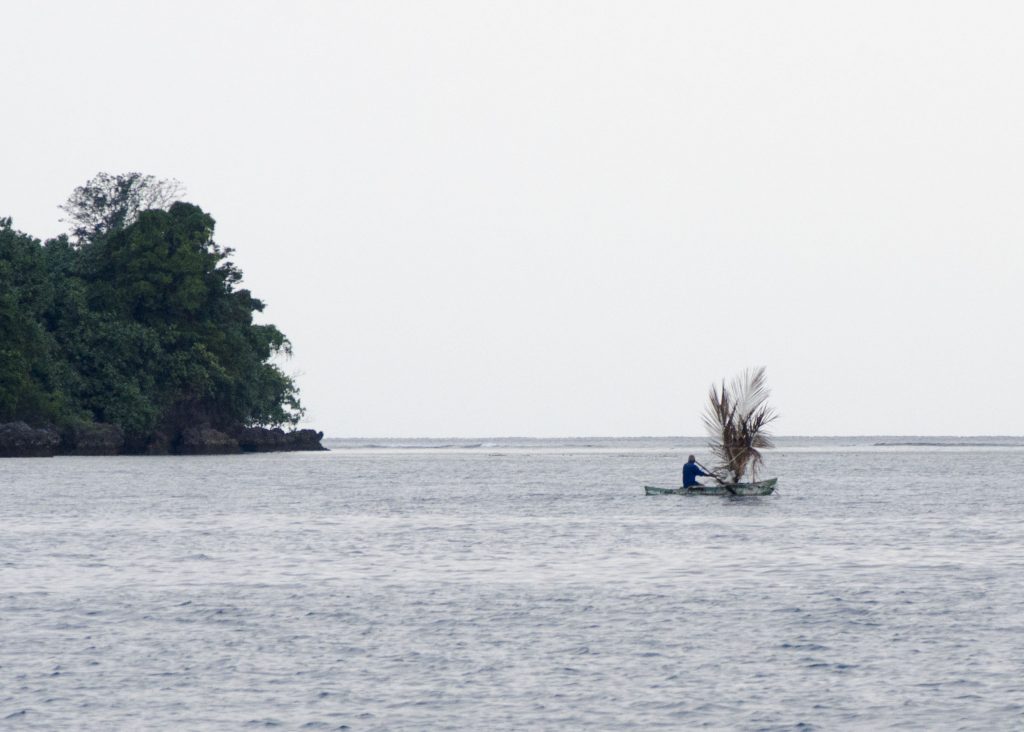
Some locals sailed their dugouts
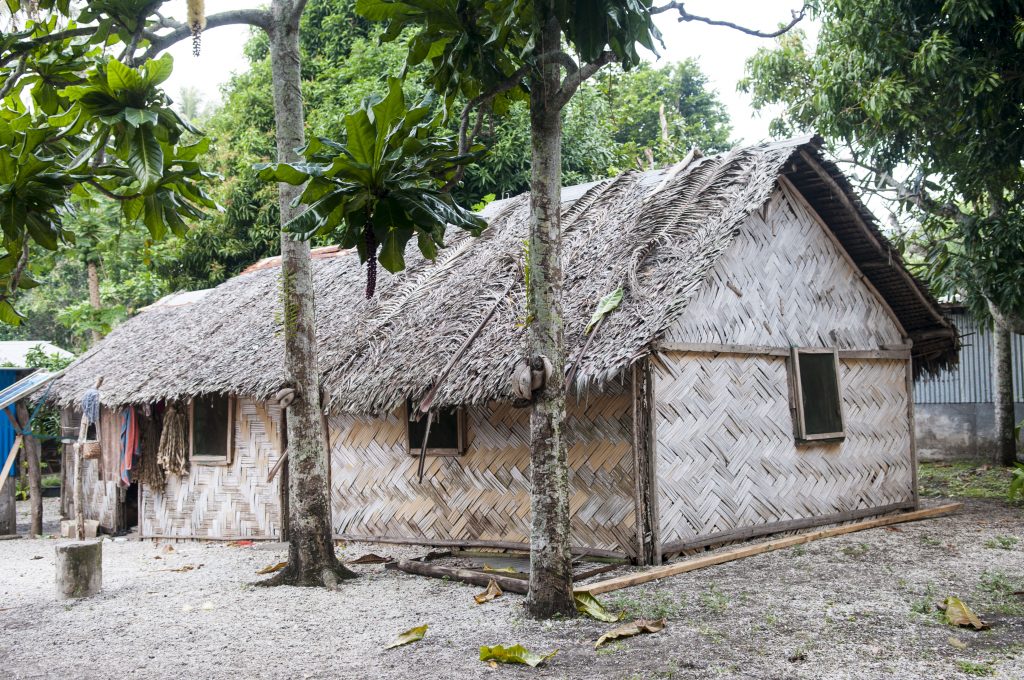
Hand tools, coconut trees and local knowledge and you have a home!
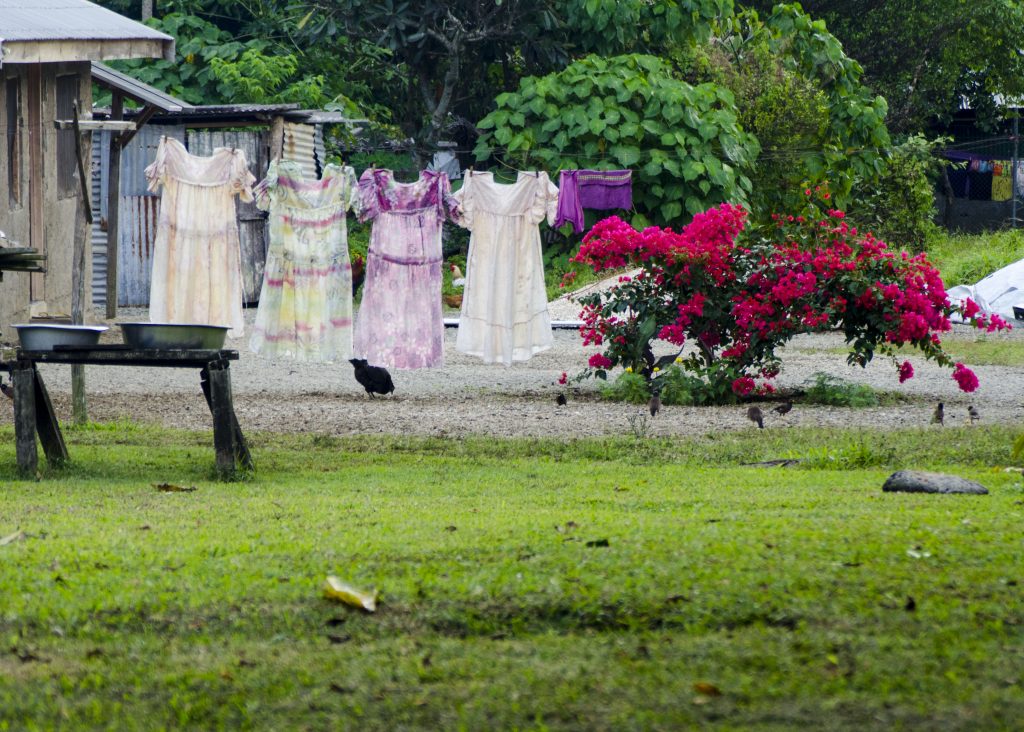
A good day for washing. Traditional ‘Island’ dress!